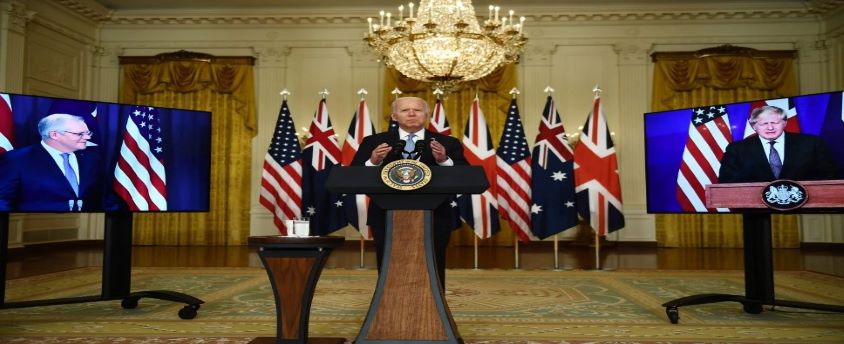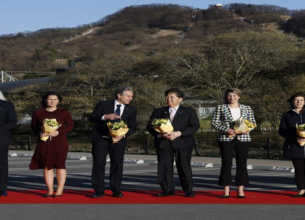AUKUS Pact
17, Mar 2023

Prelims level : International Relations
Mains level : GS-II Bilateral, Regional & Global Groupings & Agreements Affecting India’s Interests
Why in News?
- Australia to get nuclear-powered submarines under AUKUS enhanced security partnership.
Highlights:
- The AUKUS deal is expected to be rolled out in three phases in the Indo-Pacific region.
- In the first phase, the U.S. and the U.K. navies will embed Australian personnel, and increase port visits to Australia to train together.
- In the second phase, U.S. and U.K. nuclear submarines will travel rotationally to Australia, and the U.S. will sell Australia up to five nuclear-powered Virginia-class submarines.
- AUKUS unveiled plans to provide Australia with conventionally armed, nuclear-powered attack submarines in the early 2030s to counter China’s ambitions in the Indo-Pacific.
- The deal, the biggest for Australia, using British design and U.S. technology, is expected to cost $368 billion.
- A new submarine called the SSN-AUKUS will be built and used by all three navies, with interoperable workings.
How will nuclear submarines help Australia?
- Firstly, the agreement represents a significant shift in Australia’s strategic posture, as it seeks to enhance its military capabilities to better deter potential adversaries in the region.
- The acquisition of nuclear-powered submarines will provide Australia with a powerful tool to project its military power and strengthen its strategic position vis-à-vis China.
- Nuclear-powered submarines can reach far out into the ocean and launch attacks on the enemy, an important capability for blue water navies.
- Virginia class submarines and SSN-AUKUS will give the Royal Australian Navy the capability to go into the South China Sea to protect its assets and conduct patrols, a capability which it currently does not possess.
China Factor:
- This move to provide Australia with the technology and expertise to develop nuclear-powered submarines is seen as a significant shift in the balance of power in the Indo-Pacific region.
- The agreement has raised concerns in China, which sees it as a provocative move that could escalate tensions in the region. China has accused the United States, the United Kingdom, and Australia of forming a “new Cold War clique” aimed at containing China’s rise.
- China has also criticised the agreement for its potential impact on the nuclear non-proliferation regime.
- This might lead to a further deterioration in the already strained relationship between China and the United States.
- It has also raised concerns among other countries in the region, including Japan and South Korea, who fear that the agreement could destabilize the region and trigger an arms race.









